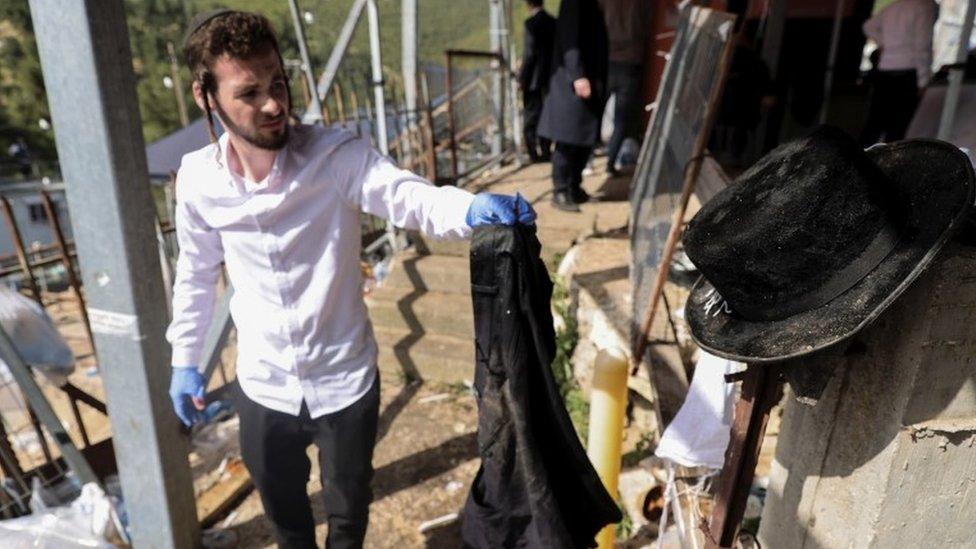Israel crush: State watchdog to investigate disaster on Mount Meron
- Published
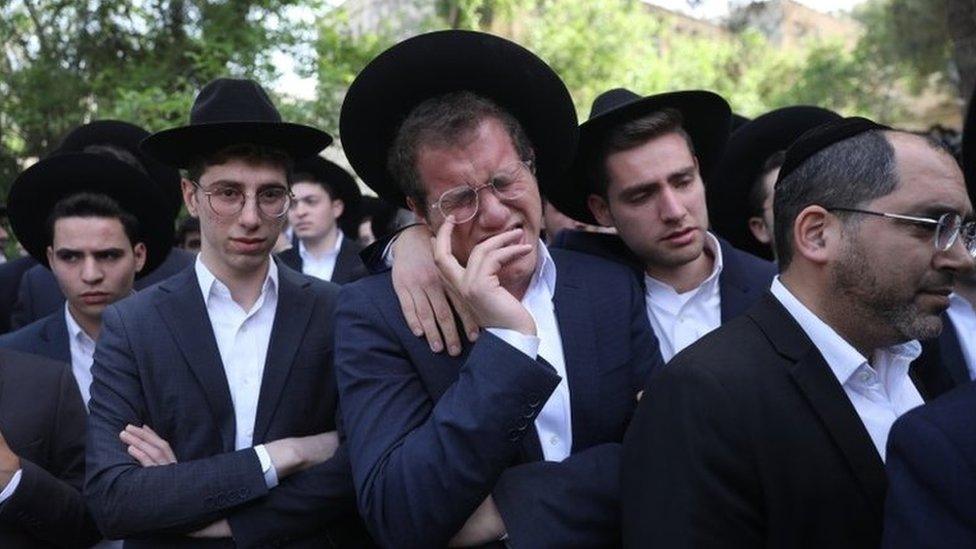
One of the victims, Argentine student Avrohom Daniel Ambon, was buried in Jerusalem on Monday
Israel's government watchdog will open a special inquiry into a crush at a Jewish religious festival on Friday that left 45 men and boys dead.
Some 150 others were injured at the event on Mount Meron when they became trapped in an overcrowded passageway.
"This disaster could have been prevented," State Comptroller Matanyahu Engelman said on Monday.
The comptroller's office had previously issued two reports warning of major risks to people attending the festival.
Prime Minister Benjamin Netanyahu has promised a "thorough" investigation into what went wrong, but he has not yet responded to calls for a state commission of inquiry that would have wide-ranging powers.
One of Israel's worst civilian disasters occurred as tens of thousands of mostly ultra-Orthodox Jews participated in the annual Lag B'Omer festival outside the tomb of the revered 2nd Century sage, Rabbi Shimon Bar Yochai.
Following a bonfire-lighting ceremony that ended early on Friday, men and boys who had been gathered on stands began heading towards an exit.
Witnesses said some slipped on steps at the end of a narrow passageway and that those behind began falling on top of them, causing the crush.
"Yedidya, to my great sorrow, did not survive"
At least 12 boys were among those killed. The youngest was nine-year-old Yehoshua Englander, whose brother Moshe, 14, also died.
The victims included four Americans, a Canadian and an Argentine seminary student, Avrohom Daniel Ambon, who was buried in Jerusalem on Monday.
At a news conference, Mr Engelman said the inquiry by the state comptroller's office would investigate the circumstances that led to the disaster.
"It is our duty to examine this event and what preceded it. Any aspects of personal responsibility will be unequivocally reflected in the report, with individual reference to those concerned," he added.
Mr Engelman noted that reports published by a predecessor in 2008 and 2011 had warned of "dangers to human life" during festivities on Mount Meron.

The festival was taking place near the tomb of the 2nd Century sage Rabbi Shimon Bar Yochai
The first warned that additions and changes had been made at the site without the approval of planning committees, and that access roads and paths were "narrow and not appropriate to accommodate the hundreds of thousands of people who visit the site", external.
It also noted that there were "many different authorities all involved in [the site's] management", external and that no single authority was taking responsibility for overseeing events there.
With many coronavirus-related restrictions lifted because of the success of Israel's world-leading vaccination programme, officials had authorised only 10,000 people to attend on Thursday night. But Israeli media reports suggested that up to 10 times that number were present.
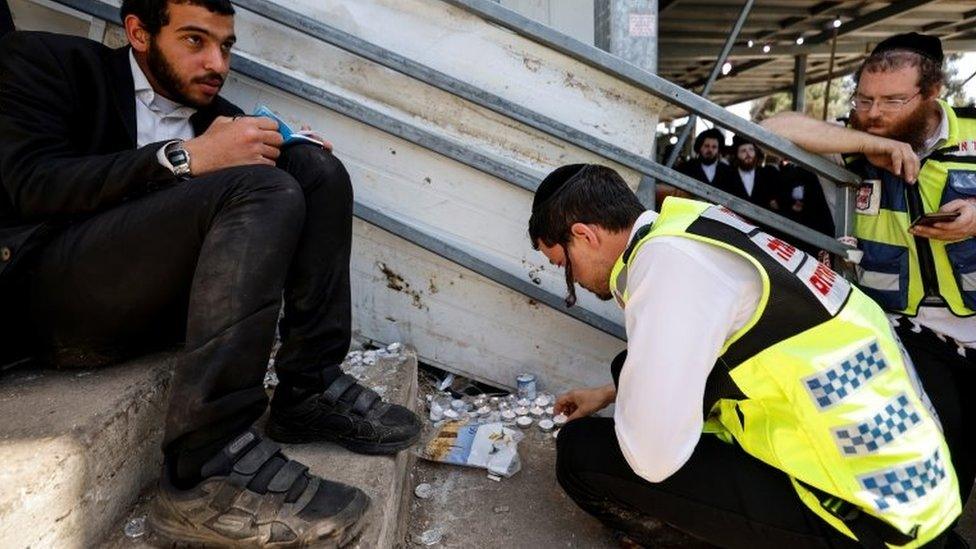
An emergency services worker lights candles at the scene of Friday's disaster
The state comptroller's announcement came a day after Justice Minister Benny Gantz said he wanted to set up a state commission of inquiry.
"Only a state commission of inquiry can deal with all the aspects of investigating the disaster, since it has the broadest powers and will have the tools to make the necessary recommendations," he said.
"Setting up the commission will not bring loved ones back to their families or relieve their pain, but it can prevent such a disaster in the future."
The justice ministry has already begun looking into the police force's actions.
Northern District Commander Shimon Lavi, who oversaw the security arrangements on Mount Meron, told reporters on Friday: "I bear overall responsibility, for better or worse, and am ready for any investigation."
Public Security Minister Amir Ohana also said he took responsibility, but he stressed that "does not mean blame".
- Published1 May 2021
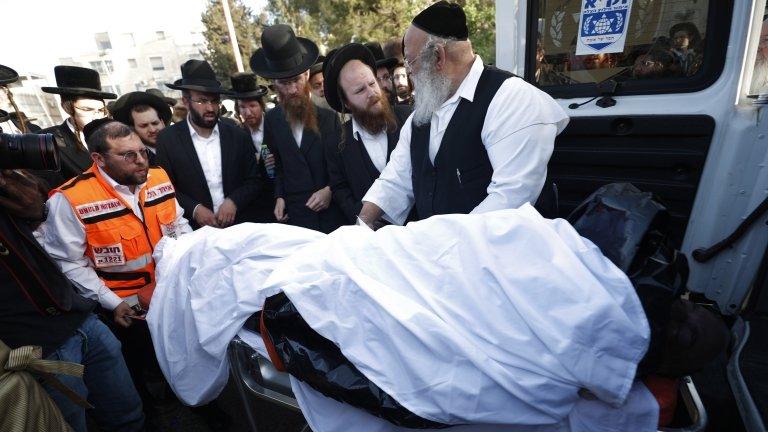
- Published30 April 2021
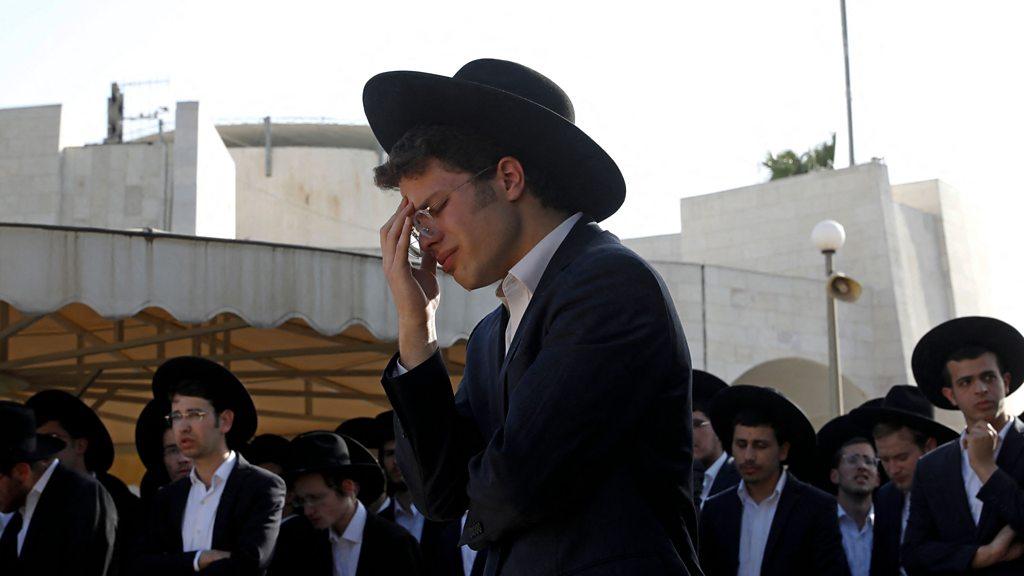
- Published30 April 2021
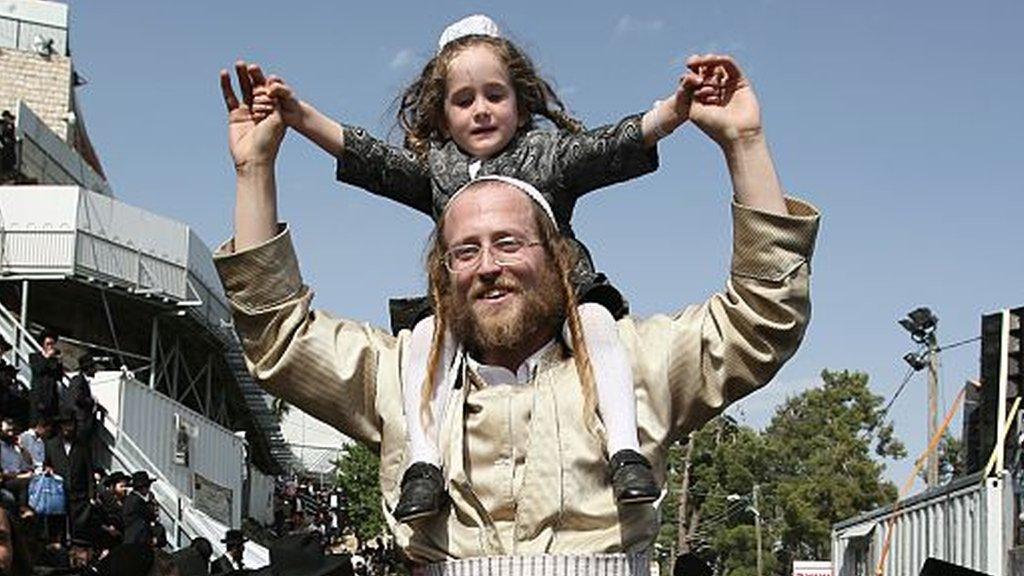
- Published30 April 2021
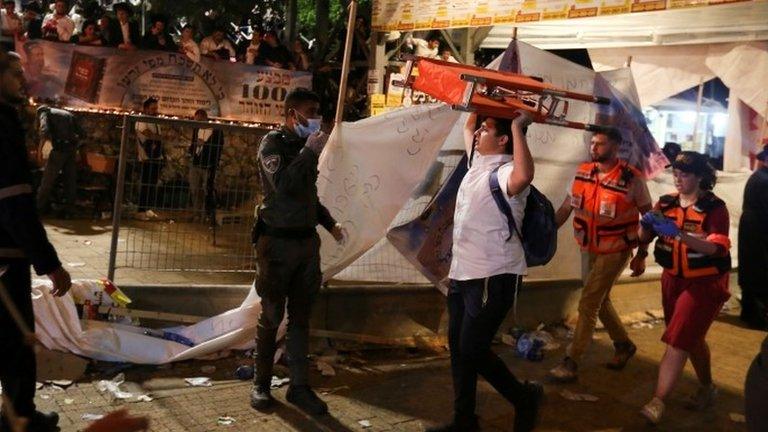
- Published30 April 2021
